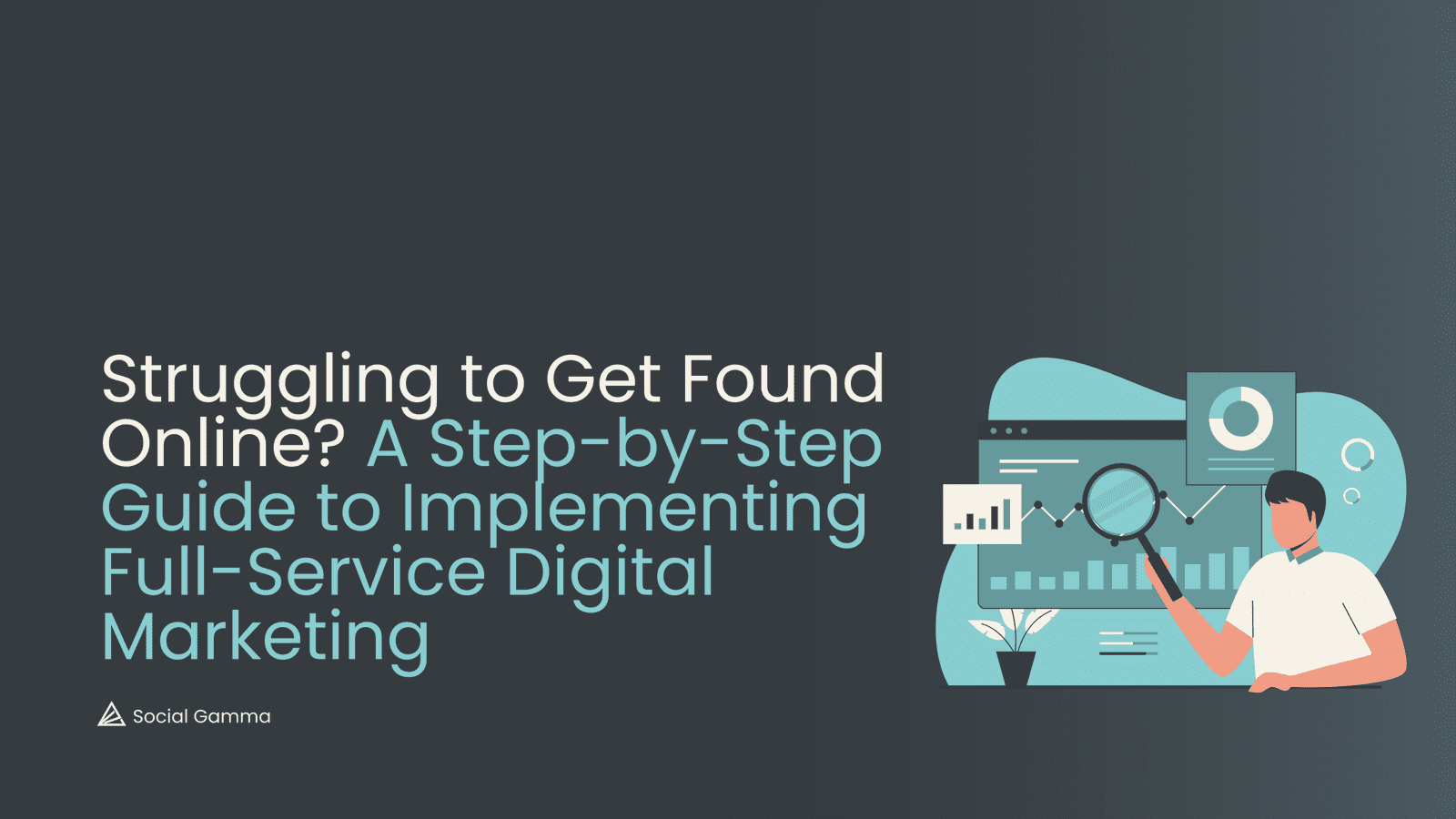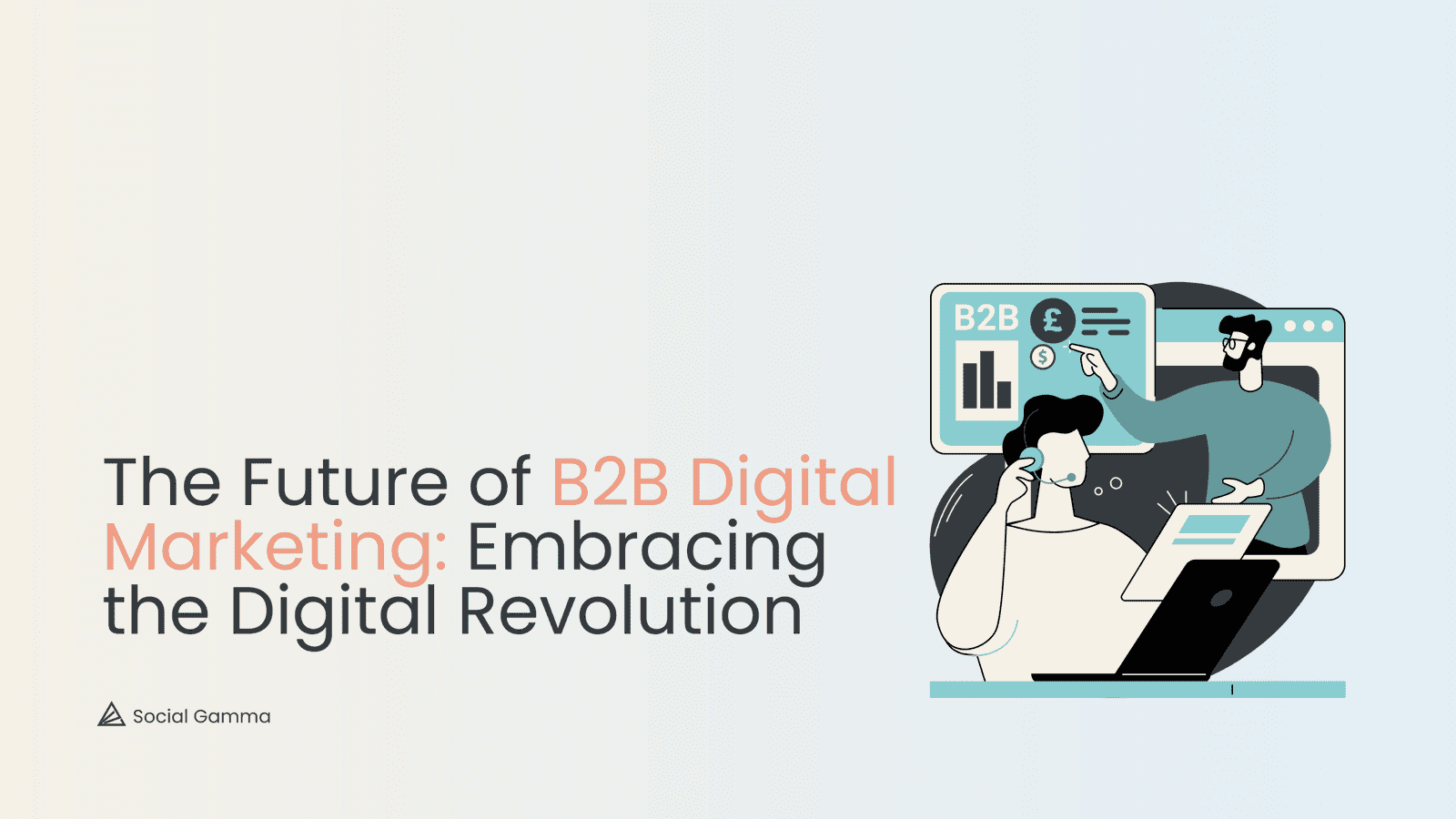Performance marketing agencies (PMAs) specialise in delivering measurable results through targeted campaigns, making them a valuable asset for businesses seeking growth. But with a plethora of PMAs vying for your attention, selecting the right partner can be a daunting task. This guide equips you with the knowledge and steps to navigate the selection process and find the ideal performance marketing agency to propel your business forward.
Contents
- 1 What Is Performance Marketing?
- 2 How to Measure Performance Marketing?
- 3 Performance Marketing vs Brand Marketing
- 4 Performance Marketing vs Affiliate Marketing
- 5 Performance Marketing vs Programmatic Marketing
- 6 Performance Marketing Types
- 7 AI and ChatGPT for Performance Marketing
- 8 How to Build a Performance Marketing Strategy?
- 9 Benefits of Performance Marketing?
- 10 Choosing the Right Performance Marketing Agency?
What Is Performance Marketing?
Performance marketing is a data-driven marketing strategy where advertisers pay for measurable results, such as website traffic, leads generated, or sales conversions. Unlike traditional brand marketing, which focuses on brand awareness and building positive associations, performance marketing prioritises achieving specific and quantifiable goals.
How to Measure Performance Marketing?
The effectiveness of performance marketing campaigns is measured through key performance indicators (KPIs) aligned with your specific goals. Common KPIs in performance marketing include:
- Website traffic: The number of visitors to your website.
- Lead generation: The number of potential customers who express interest in your product or service.
- Conversion rate: The percentage of visitors who take a desired action on your website, such as making a purchase or subscribing to a newsletter.
- Cost per acquisition (CPA): The cost associated with acquiring a new customer.
- Return on investment (ROI): The net profit generated from a marketing campaign.
By tracking and analysing these KPIs, PMAs can optimise campaigns for better performance and ensure you’re getting the most out of your marketing budget.
Performance Marketing vs Brand Marketing
While both performance marketing and brand marketing contribute to your overall marketing strategy, they serve distinct purposes:
- Performance marketing: Focuses on achieving specific, measurable goals and driving conversions.
- Brand marketing: Focuses on building brand awareness, establishing brand identity, and fostering positive brand associations.
Performance marketing campaigns often leverage brand awareness established through brand marketing efforts. A successful marketing strategy typically incorporates both approaches, working in tandem to attract new customers and nurture existing ones.
Performance Marketing vs Affiliate Marketing
Affiliate marketing is a subset of performance marketing where you partner with other businesses or individuals (affiliates) to promote your products or services. Affiliates earn a commission for each sale or lead generated through their efforts. Performance marketing encompasses a broader range of strategies beyond affiliate partnerships, including search engine optimisation (SEO) and pay-per-click advertising (PPC).
Performance Marketing vs Programmatic Marketing
Programmatic marketing refers to the automated buying and selling of advertising space across various digital platforms. Performance marketing campaigns can leverage programmatic advertising to efficiently reach target audiences at scale. However, programmatic marketing is a broader technology used within performance marketing strategies, not a distinct strategy itself.
Performance Marketing Types
Performance marketing encompasses a variety of tactics to achieve your marketing objectives. Here are some common types:
- Pay-per-click advertising (PPC): Creating targeted ads on search engines and other platforms, including display ads, involves a payment model where you only incur charges when someone clicks on your advertisement.
- SEM: Search engine marketing (SEM) constitutes a vital component of performance marketing, meriting both time and investment. SEM involves the placement of paid advertisements on search engine results pages (SERPs). Its effectiveness lies in presenting users with highly targeted ads corresponding to the product or service they seek precisely when their intent is at its peak, thus significantly enhancing the likelihood of capturing their attention and interest.
- Affiliate marketing: Partnering with affiliates to promote your products or services in exchange for a commission on sales.
AI and ChatGPT for Performance Marketing
Artificial intelligence (AI) and large language models (LLMs) like ChatGPT are transforming performance marketing. Here are some ways they are being used:
- Audience targeting: AI can analyse vast amounts of data to identify and target ideal customers with greater precision. AI can analyse vast amounts of data to identify and target ideal customers with greater precision. A study found that companies that leverage AI for audience targeting see a 30% increase in customer acquisition rates.
- Ad personalisation: AI can create personalised ad experiences that resonate more effectively with individual users. AI can create personalised ad experiences that resonate more effectively with individual users. Research by Statista indicates that global spending on personalised advertising is projected to reach $223.3 billion by 2025.
- Content creation: LLMs can generate marketing content at scale, including product descriptions, blog posts, and social media content.
- Performance optimisation: AI can analyse campaign data and automatically optimise strategies for better results.
As AI technology continues to evolve, we can expect even more innovative applications within the realm of performance marketing.
How to Build a Performance Marketing Strategy?
Developing a successful performance marketing strategy requires careful planning and consideration of your business goals. Here’s a step-by-step approach:
- Define your goals and target audience: Clearly identify what you want to achieve and who you want to reach.
- Choose the right channels: Select the performance marketing channels that best align with your goals and target audience.
- Develop targeted campaigns: Create compelling campaigns that resonate with your audience and encourage them to take action.
- Set KPIs and track performance: Establish key performance indicators (KPIs) to measure success and track campaign performance regularly.
Benefits of Performance Marketing?
Performance marketing offers numerous benefits for businesses, including:
- Measurable results: You can track the impact of your marketing efforts and see exactly what’s working and what’s not.
- Improved ROI: By focusing on conversions, performance marketing helps you maximise the return on your marketing investment.
- Targeted campaigns: Reach the right audience with the right message at the right time.
- Scalability: Easily adjust your campaigns based on your budget and goals.
- Data-driven insights: Gain valuable data and insights into your target audience and their behaviour.
By understanding the different types of performance marketing and their benefits, you can develop a strategic approach to achieve your business goals and maximise your marketing ROI.
Choosing the Right Performance Marketing Agency?
Now that you have a comprehensive understanding of performance marketing, let’s delve into the process of selecting the ideal agency for your needs. The following sections will guide you through evaluating agency expertise, experience, approach, creativity, digital marketing capabilities, client service, and cost structure to ensure you make an informed decision.
Evaluating Agency Expertise and Experience:
- Team composition: Look for an agency with a team that possesses a blend of expertise in relevant areas like digital marketing, analytics, and creative content development.
- Certifications: While not always mandatory, industry certifications can indicate an agency’s commitment to staying up-to-date with best practices.
Considering the Agency’s Approach and Strategy:
- Reporting and transparency: Ensure the agency provides regular and comprehensive reports that detail campaign performance metrics and insights you can understand.
- Alignment with your budget: Discuss the agency’s fee structure upfront and ensure it aligns with your allocated budget. Performance-based pricing models, where fees are tied to achieved results, can be beneficial but require clear goal setting and performance measurement.
Assessing the Agency’s Creativity and Innovation (continued):
- Understanding of customer journeys: The agency should demonstrate a deep understanding of how your target audience interacts with your brand across different touchpoints.
- Testing and experimentation: A forward-thinking agency will embrace A/B testing and other experimentation techniques to optimise campaigns and identify what resonates best with your audience.
Reviewing the Agency’s Digital Marketing Capabilities:
- Landing page optimisation: Effective landing pages are crucial for converting website visitors into leads or customers. Evaluate the agency’s experience in creating high-converting landing pages.
- Marketing automation: Marketing automation tools can streamline processes and improve campaign efficiency. Assess the agency’s proficiency in utilising these tools.
Client Service and Communication:
- Responsiveness and availability: The agency should be readily available to address your questions and concerns throughout the campaign lifecycle.
- Cultural fit: Choose an agency whose communication style and company culture align with your own for a smoother working relationship.
Cost Structure
Performance marketing agencies typically employ various fee structures. Here are some common models:
- Retainer fees: A fixed monthly fee for a predetermined set of services.
- Performance-based fees: Fees are tied to achieved results, such as a percentage of sales generated.
- Hybrid model: A combination of retainer fees and performance-based incentives.
The best pricing model for your business depends on your specific goals, budget, and risk tolerance.
The Selection Process
Once you’ve shortlisted a few promising agencies, it’s time for a closer look. Here are some steps involved in the selection process:
- Request proposals (RFPs): Outline your goals, budget, and target audience in an RFP and request proposals from shortlisted agencies.
- Conduct agency interviews: Engage in in-depth discussions with shortlisted agencies to assess their approach, team expertise, and cultural fit.
- Review client testimonials and case studies: Seek references and case studies showcasing the agency’s past success.
Making the Final Decision
Choosing the right PMA for your business is like investing in your future. It’s important to take your time, ask a lot of questions, and think through all of the above. Finally, pick the agency that has a deep knowledge of your business objectives, has the expertise, and suggests a strategic approach that aligns with your vision
By following these steps and leveraging the power of performance marketing, you can achieve measurable results and propel your business forward.
If you still have any questions or need guidance on starting your performance marketing journey, consult with the Social Gamma team. As an award-winning performance marketing agency based in London, UK, we have successfully run campaigns for trusted brands such as Nissan, AstraZeneca, and Rolls-Royce, among others.


